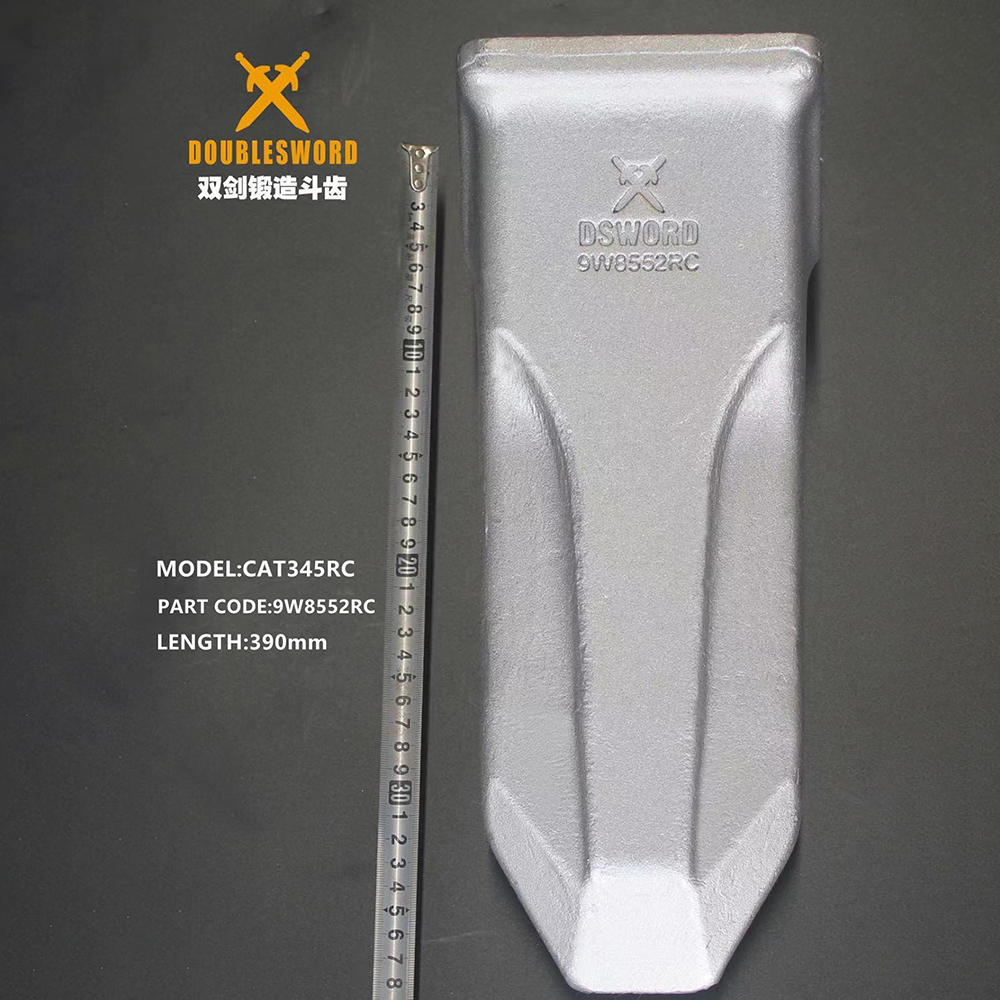Manufacturing process
Forged bucket teeth: Forged bucket teeth are generally made of alloy steel, and then a forging machine is used to apply pressure to the special metal blank, and then extruded at high temperature to refine the crystal material in the forging to produce plastic deformation to obtain certain mechanical properties. After forging, the metal can improve its structure, which can ensure that the forged bucket teeth have good mechanical properties, are more wear-resistant, and have a longer service life.
Casting bucket teeth: Austenitic spheroidal graphite cast iron is generally used for casting bucket teeth, and then liquid metal is cast into a casting cavity suitable for the shape of the part. After it is cooled and solidified, the part or blank is obtained. This process can provide good wear resistance and penetration.
In general, due to the material structure of the cast tooth, its wear resistance, toughness and penetration are not as good as the forged tooth, but it can provide lighter weight, better hardness and cheaper price.
How to maintain bucket teeth and tooth seats
First of all, choosing the right bucket teeth is an important factor in prolonging your excavator's working life and stronger penetrating power, because matched bucket teeth and accessories are the prerequisite for faster excavator working cycle and saving raw materials.
Secondly, during the use of the bucket teeth of the excavator, the outermost tooth of the bucket is 30% faster than the innermost wearing part. Therefore, after a period of time, you can change the position of the inside and outside of the bucket or rotate it to a certain extent. To ease and provide productivity.
Then, when operating the excavator, it is best to dig under the bucket teeth perpendicular to the working surface to avoid breaking the bucket teeth due to excessive inclination.
Finally, coating tungsten coatings on bucket teeth and other accessories can effectively reduce maintenance costs and improve machine efficiency.
If it is to replace the bucket, which bucket tooth is better?
This will involve what kind of excavator you are and which scene you are mainly using.
1 General bucket teeth, hardness granules, moderate toughness, general working conditions
2 Bucket teeth for minerals High hardness and moderate impact toughness Used for severe impact conditions
3 Special bucket teeth, high hardness, high impact toughness, used for working conditions with severe wear and impact
Post time: Nov-19-2021








